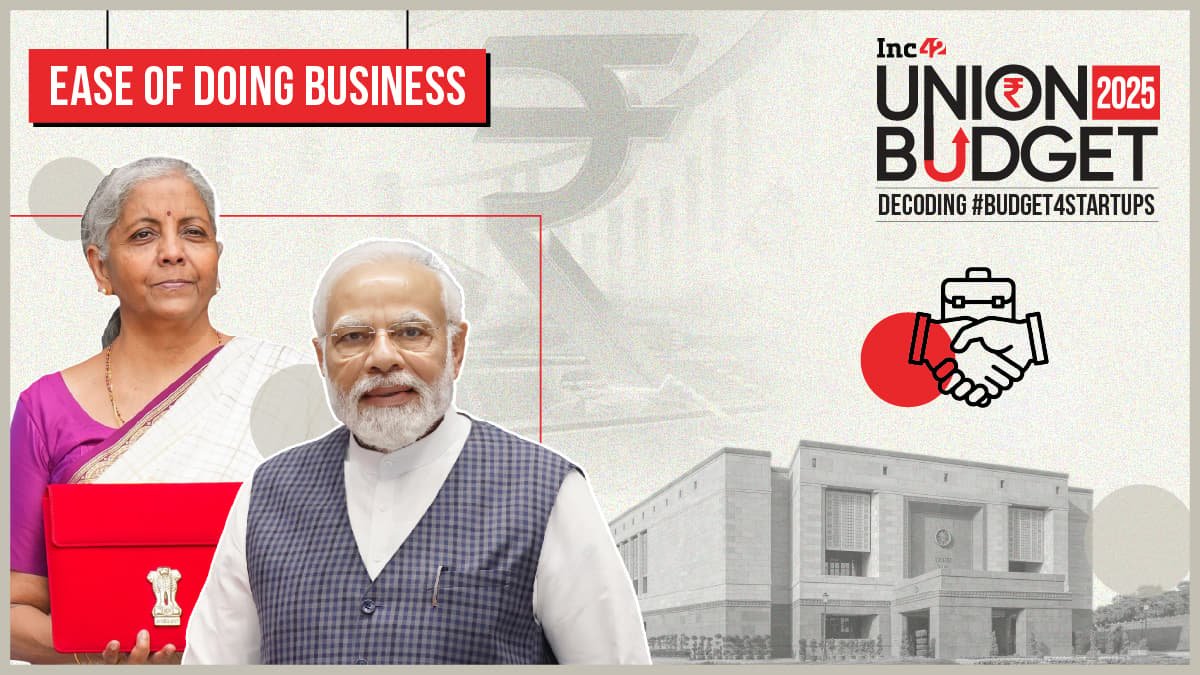Finance minister Nirmala Sitharaman said a “light-touch regulatory framework” will keep up with technology and global trends
A high-level committee will review regulations, licences, and certifications in the non-financial sector
The government will launch an Investment Friendliness Index in 2025. This will promote competitive cooperative federalism among states
The government has announced new reforms in Budget 2025 to improve the ease of doing business. The focus is on modernising regulations and creating a trust-based framework.
In her budget speech 2025 on Saturday (February 1), finance minister Nirmala Sitharaman said a “light-touch regulatory framework” will keep up with technology and global trends. She said it would create a business-friendly environment.
Four key steps will be taken in this direction:
High-Level Committee For Regulatory Reforms: A high-level committee will review regulations, licences, and certifications in the non-financial sector. It will submit recommendations within a year. The goal is to streamline compliance and inspections. States will be encouraged to take part.
“We want a trust-based economy. Outdated rules must not hold back business growth,” Sitharaman said.
lockquote>
Investment Friendliness Index Of States: The government will launch an Investment Friendliness Index in 2025. This will promote competitive cooperative federalism among states.
Financial Regulations Review Mechanism: A new mechanism under the Financial Stability and Development Council (FSDC) will assess financial regulations. It will ensure better regulatory responsiveness and financial sector growth.
Jan Vishwas Bill 2.0: The Jan Vishwas Bill 2.0 will further simplify laws. It will decriminalise over 100 provisions across various laws. This follows the Jan Vishwas Act 2023, which decriminalised over 180 provisions.
Further, the government has introduced key reforms to facilitate trade and ease regulatory compliance. A two-year time limit, extendable by one year, will now apply to provisional assessments under the Customs Act, 1962, reducing uncertainty for businesses.
A voluntary compliance system will allow importers and exporters to declare material facts and pay duties with interest but without penalties unless under investigation.
Additionally, the time limit for the end-use of imported inputs has been extended from six months to one year, and importers will now file quarterly instead of monthly statements, easing administrative requirements.
Not only this, the government is also pushing for a fully digital tax system within two years, and the Vivad Se Vishwas Scheme has already helped settle disputes for 33,000 taxpayers.
To boost startups and investment, tax benefits under Section 80-IAC will be extended for five more years, covering startups incorporated before April 1, 2030. Capital gains tax rates will be standardised for non-resident investors, including Foreign Institutional Investors (FIIs).
Charitable trusts and institutions will see streamlined regulations, with smaller entities now enjoying a 10-year registration validity instead of five. Minor defaults, such as incomplete applications, will not result in automatic deregistration.
“This budget is about removing barriers and fostering trust. A modern regulatory approach will boost productivity and create jobs,” said finance minister Nirmala Sitharaman.
lockquote>
Disclaimer
We strive to uphold the highest ethical standards in all of our reporting and coverage. We StartupNews.fyi want to be transparent with our readers about any potential conflicts of interest that may arise in our work. It’s possible that some of the investors we feature may have connections to other businesses, including competitors or companies we write about. However, we want to assure our readers that this will not have any impact on the integrity or impartiality of our reporting. We are committed to delivering accurate, unbiased news and information to our audience, and we will continue to uphold our ethics and principles in all of our work. Thank you for your trust and support.



![[CITYPNG.COM]White Google Play PlayStore Logo – 1500×1500](https://startupnews.fyi/wp-content/uploads/2025/08/CITYPNG.COMWhite-Google-Play-PlayStore-Logo-1500x1500-1-630x630.png)